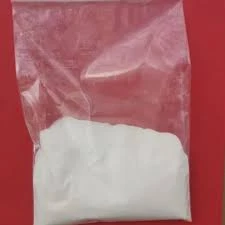The Evolution of API and Pharma Manufacturing Challenges and Innovations
In the rapidly evolving world of pharmaceuticals, Active Pharmaceutical Ingredients (APIs) play a crucial role. These substances are the essence of any therapeutic drug, providing the intended effects of treatment. The manufacturing of APIs is a complex, multi-step process that not only emphasizes quality and compliance but also necessitates innovation to keep pace with an ever-changing market and stringent regulatory requirements.
The Importance of APIs in Drug Development
APIs are essential for drug formulation, responsible for the pharmacological activity of medications. As global health demands increase, the need for more efficient and cost-effective API manufacturing is paramount. The pharmaceutical landscape is witnessing an upsurge in biopharmaceuticals, which has shifted focus onto the development of novel APIs, including complex molecules like monoclonal antibodies and gene therapies. The complexity of these new types of APIs requires sophisticated manufacturing processes and advanced technologies.
Current Manufacturing Landscape
Traditional methods of API manufacturing involve a series of chemical reactions, purification steps, and strict quality control measures. The methods are labor-intensive and can be time-consuming, often taking several months to complete. In recent years, the rise of continuous manufacturing has begun to revolutionize this field. Continuous processes allow for a more streamlined production, improving efficiency and reducing waste. This shift not only enhances productivity but also helps in maintaining consistent product quality.
Regulatory Challenges
The pharmaceutical manufacturing industry is one of the most regulated sectors globally. Regulatory agencies, such as the FDA in the United States and the EMA in Europe, impose strict guidelines to ensure the safety, efficacy, and quality of APIs. Compliance with these regulations is essential but often presents challenges. The pressure of maintaining compliance can lead to increased operational costs and manufacturing delays.
Moreover, the COVID-19 pandemic highlighted vulnerabilities in the API supply chain, exposing dependencies on a limited number of global manufacturers. This has prompted regulatory bodies to encourage the diversification of supply sources and the establishment of local manufacturing capabilities. Implementing new regulations aims to ensure a more resilient supply chain for vital medications.
api pharma manufacturing

Technological Innovations
The integration of advanced technologies has become crucial in overcoming manufacturing challenges. Automation and digitalization are paving the way for smarter production lines. Real-time monitoring systems and artificial intelligence (AI) can predict equipment failures, optimizing maintenance schedules and reducing downtime. AI also plays a significant role in drug discovery and development, potentially speeding up the time it takes to bring new therapies to market.
Another groundbreaking advancement is the use of 3D printing technology in pharmaceutical manufacturing. This technology not only allows for personalized medicine but also enables the production of complex API formulations that were previously impossible to manufacture using traditional methods.
Sustainability Considerations
As the pharmaceutical industry grows increasingly aware of its environmental impact, sustainable manufacturing practices are becoming a focal point. The adoption of greener chemistry principles and waste reduction strategies not only benefits the environment but also appeals to consumers who are becoming more environmentally conscious. Companies are investing in research to discover less harmful solvents and raw materials, aiming to minimize the ecological footprint of API production.
Future Outlook
The future of API and pharmaceutical manufacturing appears promising, with relentless advancements in technology and manufacturing processes. However, it is imperative for companies to remain agile in adapting to changing regulations and market demands. Collaboration across the global supply chain will be essential in addressing challenges related to quality control, compliance, and sustainability.
As the industry continues to innovate, the potential for breakthroughs in drug development is vast. With a focus on efficiency and technological integration, the future of API manufacturing is not only about producing safe and effective medications but also about doing so in a way that is sustainable and responsible.
In conclusion, the landscape of API and pharmaceutical manufacturing is evolving rapidly, driven by challenges and innovations. The industry's ability to adapt to these changes will be critical in ensuring the availability of life-saving medications while adhering to high standards of quality and regulatory compliance.

